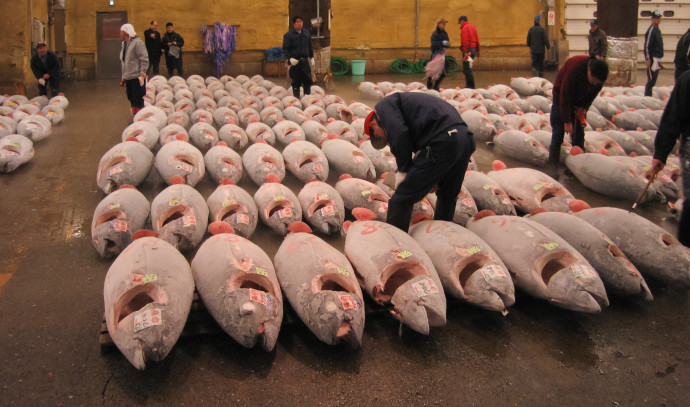Russia hopes to increase its marine product exports to China in the wake of China’s ban on Japanese seafood imports after the release of treated radioactive water from the wrecked Fukushima nuclear power plant into the sea.
Russia is one of the biggest marine product suppliers to China, with 894 Russian companies allowed to export seafood, Rosselkhoznadzor, the Russian food safety watchdog, said in July.
In a statement late on Friday, Rosselkhoznadzor said it was seeking to increase the number of exporters.
“The Chinese market in general is promising for Russian fish products. We hope to increase the number of certified Russian companies and ships, the volume of products, and its range,” the Rosselkhoznadzor statement said.
To aid that effort, Rosselkhoznadzor plans to continue dialog with China on seafood safety issues and finish negotiations with China on regulations for Russian marine products supply to the country, the statement said.
China has already banned some food imports from Japan but Thursday’s total ban was prompted by concerns about the “risk of radioactive contamination” after it started releasing the treated water.
China was the destination for over half of Russian aquatic products exports between January and August, the statement said without providing figures, dominated by pollock, herring, flounder, sardine, cod, and crab.
Russia exported 2.3 million metric tons of marine products last year worth about $6.1 billion, around half of its overall catch, with China, South Korea, and Japan being the biggest importers, according to Russia’s fisheries agency.
Japan says pollution levels are within WHO standards
Japan said criticism from Russia and China was unsupported by scientific evidence and pollution levels in the water will be below those considered safe for drinking under World Health Organization standards.
Still, Rosselkhoznadzor said it has tightened the screening of Japanese seafood imports though the volumes are insignificant.
The regulator also said the direction of currents in the Russian Far East, where about 70% of Russia’s seafood is caught, “would prevent contamination” of marine products caught by Russian ships.
It has also tightened the radiological control of seafood caught in Russian waters which are relatively close to Fukushima and would test selected samples for radiation levels, Interfax reported on Thursday, citing Rosselkhoznadzor’s Pacific office.



